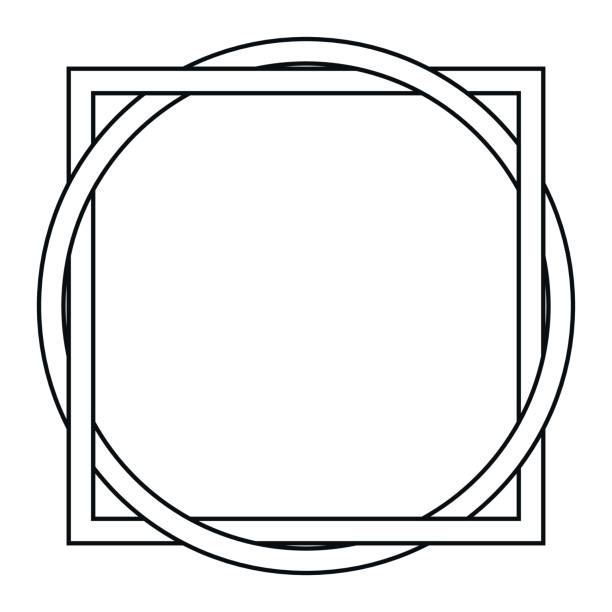Or: How Round Squares and Married Bachelorettes Broke My Brain
“Nothing is impossible.”
Sounds deep, right? Like something you’d find on a motivational poster…with a kitten hanging from a tree branch and the universe quietly imploding behind it.
But here’s the thing: some things really are impossible. Not just hard, not just unlikely – logically, metaphysically, straight-up impossible.
Take this classic example:
Can God create a rock so heavy that even God cannot lift it?
It’s a real theological riddle, but also a logical dead-end. If the answer is yes, then God is not all-powerful because there’s something He can’t do – lift the rock. But if the answer is no, then God is still not all-powerful, because He couldn’t create the unliftable rock. You lose either way. Congratulations, you’ve just tried to install a square peg into a Möbius strip.
The problem isn’t God. It’s the question.
You’re asking for a contradictory object. An unliftable rock and an all-powerful lifter at the same time. That’s like asking for a four-sided triangle or a married bachelorette. If you find either, congratulations – you’ve just broken reality. Or at least your geometry teacher.
In Japanese Zen, these kinds of impossibilities show up in kōans…puzzling statements meant to shake you loose from normal patterns of thought.
“What’s the sound of one hand clapping?”
(Spoiler: it’s not on Spotify…but it might be a lo-fi remix somewhere on YouTube.)
Unlike Western paradoxes, which are often seen as problems to solve, Zen paradoxes are more like poetic traps. They don’t unravel – they unravel you. They point toward the limits of language, logic, and what we think of as common sense.
In Western logic, when something contradicts itself, it gets tossed out as nonsense. In Japanese philosophy, contradictions can be embraced as part of the mystery. The moon reflected in water. A silent bell. Impermanence made visible. Beautiful nonsense.
But even Zen has limits. Because some paradoxes don’t just bend your mind – they break the system.
“Can you draw a square circle?”
No. You can draw something weird and wobbly and call it “abstract,” but by definition, a shape can’t be both square and circular at once. That’s not profound. That’s just wrong.
In philosophy, we call this a category mistake – trying to fit two incompatible ideas into the same conceptual drawer. Like pouring soup into a sock and wondering why your dinner tastes like feet.
These paradoxes aren’t deep mysteries. They’re just logical mismatches dressed in philosophical cosplay.
And yet… we keep falling for them.
Why? Maybe because we want the universe to be mysterious. We want some poetic loophole that lets the impossible sneak in through the back door. Or maybe we just like messing with ideas until they cry uncle.
But even if you’re fluent in Zen or a champion of chaos, logic still gets the final say. Some things simply can’t be – and trying to imagine them won’t make them real.
It’s not negative. It’s just clean.
Even the Japanese, kings and queens of quiet paradox, know when to tap out. You’ll never hear a Zen monk say, “Be the sound of one hand clapping – and a tambourine.” You’ll just get a sideways glance, a cup of tea, and a nudge toward silence.
Real life is full of contradictions – but they’re not always logical paradoxes. Sometimes they’re just cultural ones.
Japanese students are told to be original but not stand out too much…basically, be a round square in uniform.
Western students are told to think outside the box, but only if their essays still fit inside the grading rubric.
Schrödinger’s creativity.
Maybe the real paradox is that we keep trying to sort life with clean categories at all.
But just because life is messy doesn’t mean logic is wrong.
Some things really are impossible.
And no amount of clapping…one hand or two…is going to change that.
Author’s Note:
If you enjoyed this paradox and didn’t explode, congratulations. You’re officially qualified to have tea with a Zen monk and argue with your microwave. More brain-melting contradictions coming soon. Until then, avoid round triangles and always ask yourself: “Is this soup, or is this my lost sock?”
The original question I was pondering when I started writing this article came from something I read back in high school, a strange little sentence that’s stuck in my brain ever since, like one of those catchy TV jingles you can still recite 40 years later, even though you can’t remember the product or where you put your car keys this morning :
“Nothing is a round square. A round square is impossible. Therefore, nothing is impossible.”
At first glance, it sounds almost convincing. But the whole thing hinges on a sneaky word game. In the first sentence, “nothing” means “no thing” ~ an absence, a void, the cosmic shrug. In the conclusion, though, “nothing” is used as a quantifier ~ meaning “not anything.” That tiny shift in meaning creates a paradox that’s more about linguistic gymnastics than actual impossibility.
A round square is still not happening.
Language just likes to mess with us.
Now… time for coffee…


Leave a Reply